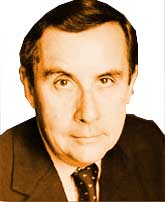|
|
William Pfaff
 National Front amassing power
National Front amassing power
PARIS -- "God is not mocked," Saint Paul advised us, "whatsoever a man soweth, that shall he also reap." French politicians should sorrowfully be examining their consciences today, but anger and humiliation undoubtedly come before penitence. However, there will eventually be plenty of time for that.
The French right has suffered a moral as well as political implosion as a result of regional elections in recent days in which the extremist National Front won the roughly 15 percent of the vote it has received in past national elections, but emerged in a tactical position to throw the presidency of many regional assemblies to either the right or (by abstention) to the left.
Last Friday (March 20), in five regional councils,
representatives of the mainstream right accepted National
Front support and entered into effective collaboration with
the party of Jean Marie Le Pen. President Jacques Chirac made a dramatic appeal Monday night for rejection of these
alliances with the "racist and xenophobic" National Front.
made a dramatic appeal Monday night for rejection of these
alliances with the "racist and xenophobic" National Front.
The five defectors, all members of the conservative-centrist UDF party, which is allied with Mr. Chirac's neo-Gaullists, nonetheless persisted. Their party's leadership threatened on Tuesday to expel them, but the result may be a permanent split in the party, or its collapse, and an important national political realignment.
Other mainstream conservative politicians had already resigned leadership in councils where the National Front had supplied the decisive votes to elect them. Their followers then allowed the Socialist-led left to take control.
Much damage, however, had been done. The National Front is looking for the political legitimacy until now denied it by the isolation imposed upon it by the mainstream parties. In five regions it found that legitimation.
The National Front is racist, chauvinist, anti-Semitic, hostile to the European Union and to the political values of the French Republic and anti-American. Its leader, Jean-Marie Le Pen, is a vulgar demagogue.
The party is also a vehicle of popular protest against unemployment and the social deterioration and violence that mainly punishes the working-class French, both immigrant and non-immigrant. It is authentically populist, anti-elitist and anti-establishment.
There has always been a reactionary, populist and xenophobic right in France. In the past it often was more intelligently led and enjoyed more support than is the case today. The reason the National Front today is in a position of peculiar strength is that the mainstream parties put it there.
Former Socialist President Francois Mitterrand caused proportional representation to be installed for both regional and legislative elections in the mid-1980s, specifically to promote the national visibility of the National Front and thereby divide the right. He proposed provocative legislation on immigration to increase National Front support.
The present Socialist prime minister, Lionel Jospin, while successfully conducting a moral rehabilitation of his own party, has exploited the exclusion of the National Front while expressing his own pride to be allied with the Communist Party.
The French Communist Party is not today what it once was, but nonetheless is burdened with a history of supine and duplicitous subordination to the interests of a foreign totalitarian state. There is not much there in which either it or its democratic allies can take pride.
Mr. Mitterrand was also, as now has become clear, leader of a government with a deeply corrupt inner circle, where the constitutional order and public confidence were cynically abused.
The presidency which followed, that of Jacques Chirac, has experienced nothing so spectacularly sordid, but some of Mr. Chirac's associates have been mired in lesser corruptions involving personal privilege, party profiteering and interference with justice. All this has contributed to voter alienation, mounting electoral abstention and the success of the National Front.
Mr. Chirac was elected on eloquent promises to heal social divisions and create employment but failed to do either. In the absence of an effective program, he last year ordered a senseless dissolution of parliament which, to his surprise, installed the left in power, demoralized his own electorate, angered his political followers and created the atmosphere of sauve qui peut that precipitated the right's present fiasco.
Many are now talking about institutional change for France. A characteristic reaction of the French to political crisis is to change the constitution. Yet while there are obvious legal and electoral reforms to make, the country's fundamental problem is not constitutional.
It is easy to identify. It is unemployment, youth unemployment in particular. This is a problem difficult to solve because of the commitments already made to European integration and fiscal austerity by both Socialist and rightist governments, and because of the institutional obstacles that exist in France to job creation.
If the present government could put the young to work, it
would be on its way to solving the linked social, economic
and security tensions that have created Mr. Le Pen's following.
So far, like its predecessor, it is failing to do this
3/23/98:NATO's expansion contradicts other American policies
3/18/98: The New Yorker sought money, but lost it
3/16/98: America's 'strategy of tension' in Italy
3/13/98: Slobodan Milosevic may have started something that can't be stopped